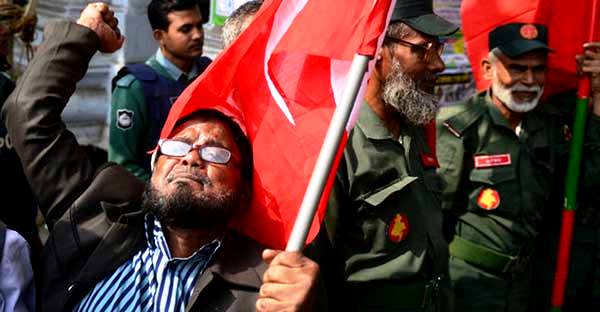Republican Senators Threaten ICC Prosecutor Karim Khan against Issuing Netanyahu’s Arrest Warrant; Equates US’ Sovereignty with Israel!
The United States of America (USA), which exists on deception, double-speak, and…
A Justice Denied as Bangladesh Prosecutes War Crimes
Ronak D. Desai A special war crimes tribunal in Bangladesh sentenced an American…


